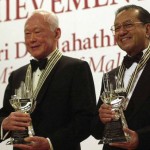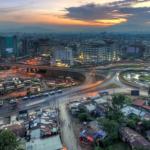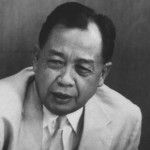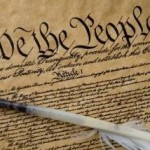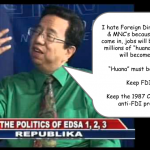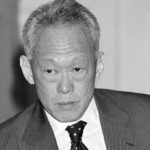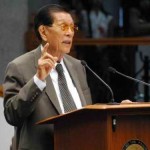The Parliamentary System can fix Philippine Politics
The Federal-Parliamentary System is Preferable to a Federal-Presidential System: Sticking to the Presidential System may worsen Philippine Politics
(This article came out of the book “Quest for a Federal Republic: The PDP-Laban Model of Federalism 1.0)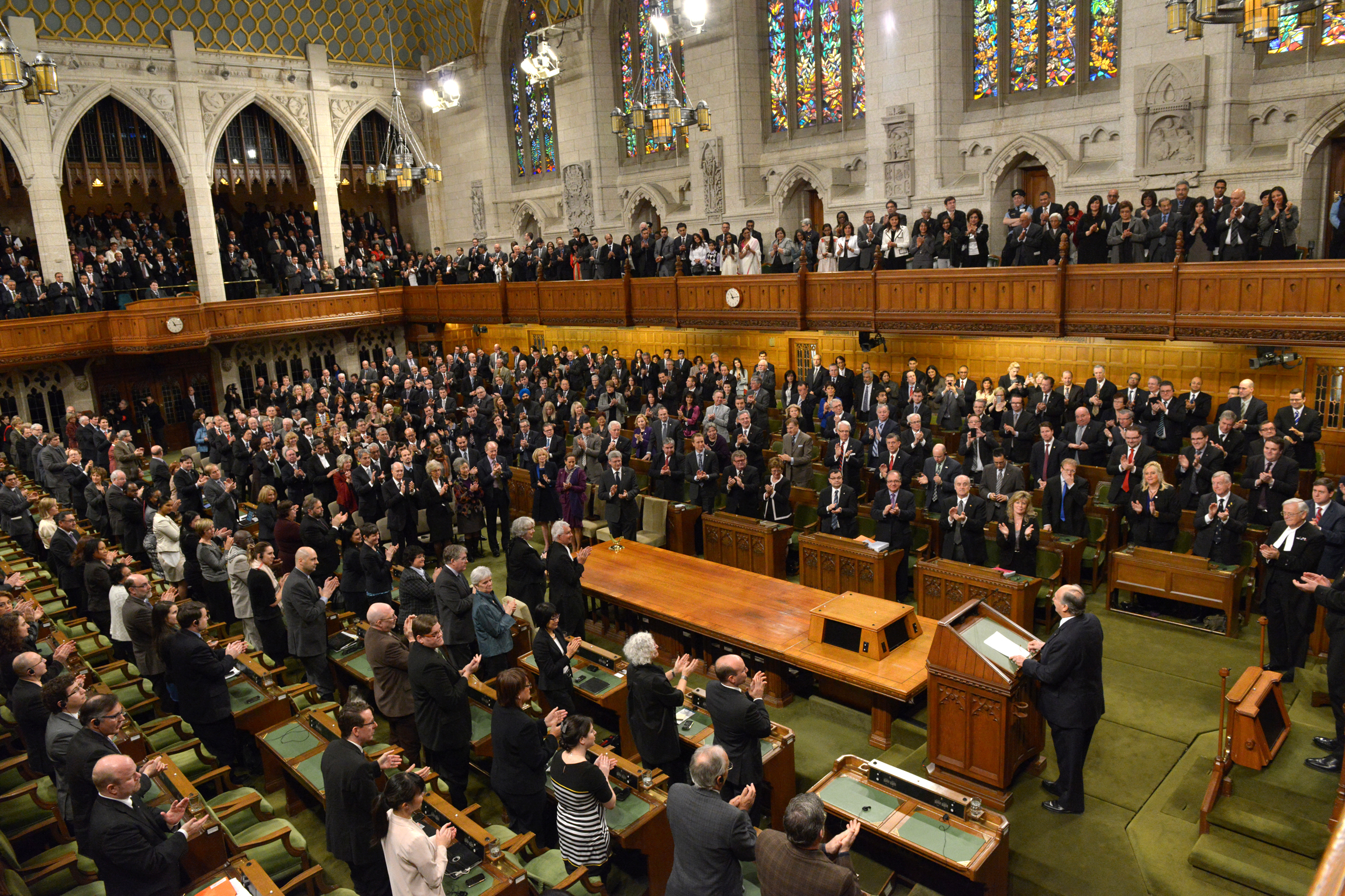
Shifting to Federalism from a unitary model presents the challenge of choosing among numerous available options based on combinations of so many different features or attributes. But perhaps the most important primary consideration in choosing the type of Federalism to be adopted is in choosing the system of government that should go along with it. There are, after all, countries using Federalism who use Parliamentary Systems, and countries using Federalism who use Presidential Systems. It therefore becomes necessary in this case to understand why Parliamentary Systems are considered to be superior to Presidential Systems.
For the longest time, Filipinos have by default tended to assume – without question – that the United States of America is “the best country in the world” and as such needs to be emulated by the Philippines if it wants to function well. For this reason, the framers of the 1935 Constitution that became the basis for how our country functions adopted the Presidential System, albeit modifying it to remove the USA’s reliance on an Electoral College, having the president and vice-president voted separately as opposed to having them voted together on a single ticket, and voting for multiple senatorial candidates in a nationwide direct election. But not long after our independence from the USA in 1946, one of the framers of the 1935 Constitution – the late Senator Claro M. Recto – started to lament about the blind adoption of the American-style presidential system when he said:
“Our Constitution was frankly an imitation of the American charter. Many of the delegates were products of an American system of education and consequently were obsessed with the sincere belief that Democracy can be defined only in American terms. Necessarily, therefore, the Philippine presidency became a copy of the American presidency, with its vast concentration of powers and only periodical accountability to the people. Like the man in the White House, the man in Malacañang is now safe from immediate responsibility. And like the men on Capitol Hill, the men on Taft and Lepanto (the old Congress) do not have to render accounts for the fixed limits of their terms. A bad President and a bad Congress may not, in Lincoln’s phrase, fool all the people all of the time. But they can make fools of the people – they can make fools of themselves – for at least four years.
Only God and impeachment can remove the President from high office, no matter how incompetent or dangerous he may have proved himself to be in the eyes of the majority of the electorate. He may quarrel with his Congress. Congress may rebel against him and systematically obstruct his administration. But the issue must remain unresolved for the duration of their arbitrary terms. Neither the President nor the Congress may be changed although those two active powers of government may be stifling the Nation in a stubborn and unbreakable deadlock.
Under the Constitution the Presidency is potentially more powerful. I do not believe it an exaggeration to state that the President of the Philippines could easily convert himself into an actual dictator within the framework of the Charter. With his control of local governments and all that it signifies in terms of elections, with huge sums and unlimited sinecures to distribute, with emergency powers to rule by executive decrees as a last resort, he is restrained only by his own conscience from perpetuating himself or his party in power.
I do not recall any considerable discussion in the Constitutional Convention on this ancient and persistent problem of governmental responsibility. I believe we were too deeply under the spell of the American system to give much thought to any alternative. But now that we have presumably been freed by the declaration of our independence… the Filipino people may soberly consider (another) system… to harness the power of government to the will of the people.”
Today, it once again makes a whole lot of sense for Filipinos to pay heed to the words of that great thinker and orator. This most especially requires reflection as more and more doubts fill the minds of people around the world as the many features of the USA’s society come to question in the wake of the worst mass shooting as of this writing – the recent Las Vegas Massacre, in which the occurrence of such horrific massacres now seems to happen with such frequency in the USA. It is likewise not very reassuring to continue to ape the US presidential system when one also remembers the Government Shutdown that happened a few years ago – which turns out to have happened numerous times before, the USA’s record of having several times had presidents coming from the same family (2 Roosevelts, 2 Bushes) plus a near occurrence of another one had Hillary Clinton won, but also the way in which celebrity sensationalism played a role in the election of several of the USA’s most recent presidents.
The Philippines is finding itself continually stuck in a situation where name recall, popularity, and appealing to a candidate’s famous parents weighs heavily in determining who emerges as the top decision-maker, rather than merit, ability, and proposed platform. This problem does not only hit the Presidency, but it also hits all other executive positions, be they at the gubernatorial or the mayoral levels. The Presidential System is becoming such a problematic system, not only in how leaders are selected, but also in how it functions, as it is subject to gridlock and second-guessing by legislative chambers who are institutionally-mandated to oppose, rather than working constructively with the executive branch.
Presidential Systems are generally unstable, Parliamentary Systems are more stable
As it turns out, the Presidential System has indeed been considered to be rather problematic by leading researchers who have compared the outcomes of Presidential Systems when contrasted against the outcomes of Parliamentary Systems. The late Dr. Juan Linz, in his seminal essay “The Perils of Presidentialism” revealed that because of the inherent gridlock that is institutionalized by the separation of executive and legislative branches in the Presidential System, Presidential Systems have tended to be much more likely to breakdown and succumb to non-democratic interventionism than Parliamentary Systems. Parliamentary Systems, thus, are considered to be more stable and much less prone to disruptions than Presidential Systems. Another researcher, the late Dr. Fred Riggs, had also built on similar observations when he wrote “The Problems of Presidentialism & the American Exception.” In this work, the late Dr. Riggs argued that while Parliamentary Systems have overwhelmingly tended to outperform Presidential Systems in terms of system stability, certain features of the US system that tend to make it somewhat parliamentary-like – such as the use of the electoral college – have helped it to be more stable than most other countries that use presidential systems.
Parliamentary Systems are less prone to corruption
In addition to system stability, Parliamentary Systems tend to outperform Presidential Systems – ceteris paribus – when it comes to efficiency and reducing corruption. In two separate studies made by two teams of researchers – one team of economists with Dr. Norman Loayza, Dr. Daniel Lederman, and Dr. Rodrigo Soares, and another team consisting of two political scientists, Dr. John Gerring and Dr. Strom Thacker, the findings have – in parallel – confirmed that corruption levels tend to be much lower in countries that use Parliamentary Systems when compared against countries that use Presidential Systems, when other variables are controlled. In fact, it doesn’t even require much complex statistical analysis to see how this is true. By simply comparing the top 30 least corrupt countries in Transparency International’s Corruption Perceptions Index ranking of countries versus the 30 most corrupt countries, one can see – with the naked eye – that it is overwhelmingly countries with parliamentary systems that dominate, versus the fact that countries with presidential systems tend to dominate the ranking of the 30 most corrupt.
It is not difficult to see why this is the case. Parliamentary Systems work with more people watching over the decision-making and implementation processes. Rather than having an executive branch which makes unilateral executive decisions, parliamentary systems feature collegial decision-making and monitoring in which numerous eyes are watching over numerous proposals, transactions, implementations, and processes. This includes the eyes of the Opposition through the official institution of the Shadow Cabinet – wherein every Minister from the Government is actively shadowed and monitored by a corresponding Shadow Minister from the Opposition, allowing the Opposition to have legally and officially-sanctioned access to everything that the Government does down to the last detail. For example, the Majority bloc which acts as the Government gets its most senior leaders to handle different portfolios as Minister for Education, Minister for the Interior, Minister for Defense, Minister for Finance, etc, while the Minority bloc which takes on the role of Opposition gets its most senior leaders to to become Shadow Minister for Education, Shadow Minister for the Interior, Shadow Minister for Defense, Shadow Minister for Finance, etc. Each shadow minister from the Opposition carefully watches over his/her own corresponding minister from the Government. Every decision or transaction made by each Minister requires the presence, acknowledgement and counter-signature by his/her corresponding Shadow Minister. It is this specific feature that tends to prevent or at the very least greatly reduces the incidences of corruption. Not only does the institution of the Shadow Cabinet ensure that the Government is kept honest and on its toes via the constant monitoring, surveillance, and scrutiny subjected to it by the watchful eyes of the Opposition, the Opposition parties are also given the ability to build experience and knowledge about how the Ministries are run so that in the event of an election, if the Opposition party suddenly wins a majority of all seats and forms the Government, their shadow ministers who had previously shadowed and followed the previous ministers around will not be clueless as to how to run things. The shadow ministers will be capable of easily taking over as ministers, knowing the issues and problems inside of the ministries they handled.
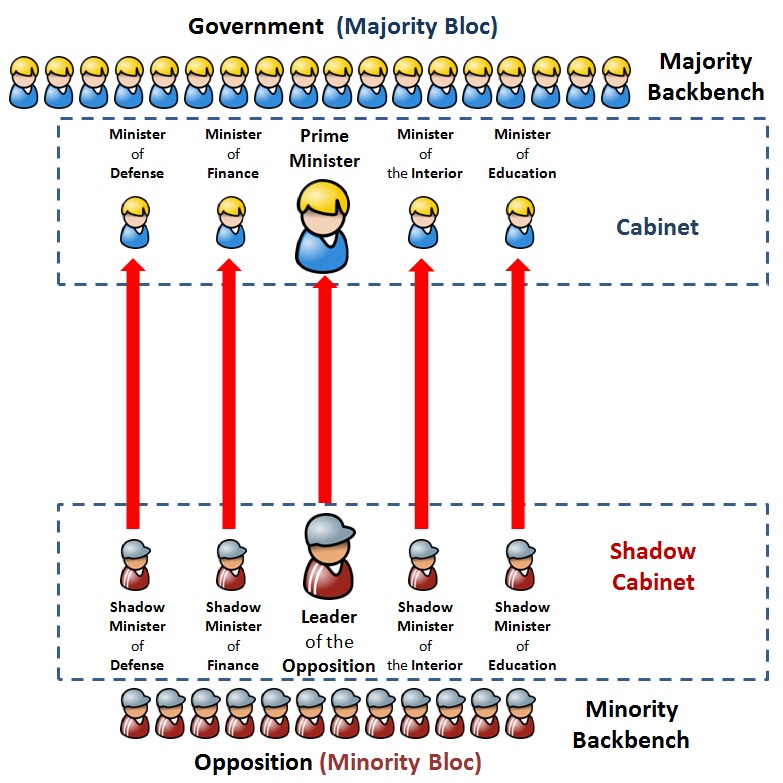
The Shadow Cabinet keeps tabs on everything that the Government does, scrutinizing decisions, proposals, etc. Each Government Minister is assigned a Shadow Minister from the Opposition to watch over each of them and question/grill them in Parliament.
Parliamentary Systems tend to produce better leaders
While Presidential Systems tend to rely on popular elections to choose leaders, causing candidates who enjoy name recall and popularity to have an unfair advantage and may often cause inexperienced and not-so-competent individuals to take on the top spot, Parliamentary Systems feature a contest between parties who then internally require that the party members be ranked according to leadership ability and competence. As such, as parties battle against each other for the public’s vote, individual party members compete within their respective parties based on merit so that whoever emerges as the party’s leader tends to be someone who has meritoriously moved up the ranks within his party and proven himself to be of the appropriate competence and ability to successfully lead the party not only to electoral victory at the polls, but more importantly to be able to deliver on the party’s platform promises and thus ensure continued success for the party as a whole.
It can be noticed, for example, that it was not that difficult for countries like Malaysia and Singapore to end up having extremely competent transformative leaders such as Malaysia’s Mahathir Mohamad and Singapore’s late Lee Kuan Yew. While it would be considerably difficult for these two “no-nonsense” leaders to win in Philippine-style Presidential Elections where song-and-dance numbers are a staple, it was perfectly possible for these serious, sometimes abrasively blunt, and straight-talking leaders to emerge on top in their countries despite the fact that earlier on, their own electorates were not yet as educated or as prosperous as they are today. Under a Presidential System, popular celebrities such as actors, TV celebrities, and athletes may have more easily won against such leaders, but because of the way Parliamentary Systems work in emphasizing competence, leadership ability, and merit as opposed to name-recall, personal popularity, and celebrity status, it was not such a big surprise that Dr. Mahathir Mohamad and the late Lee Kuan Yew ended up becoming the Prime Ministers of their respective countries, and these same leaders became responsible for enabling the continuous successful economic development of their countries.
It is worth noting that when one does a “naked-eye” comparison between the rankings of the top 30 GDP per capita countries versus the bottom 30 GDP per capita countries, the richest countries based on GDP per capita tend to have parliamentary systems, while most of the 30 poorest countries based on GDP per capita tend to have presidential, semi-presidential, and authoritarian systems.
Parliamentary countries outperform Presidential ones
Most anti-Federalism detractors have tended to provide examples of supposedly “not-so-good” countries using Federalism in order to cast doubt on the proposal to shift towards Federalism. They have often mentioned countries in Latin America and Africa such as Mexico, Venezuela, Brazil, Argentina, and Nigeria. What the anti-Federalism detractors haven’t been honest and upfront about is the fact that while these countries use Federalism, they also use a form of government that the Philippines currently has and is specifically trying to wean itself away from – the Presidential System.
In fact, in most world rankings, it is the ones that make use of a Parliamentary System as opposed to a Presidential System that tend to dominate the top. One only needs to look at the general trends that list out countries based on GDP per capita, Global Competitiveness Index, Ease of Doing Business Index, Transparency / Least Corruption, Economic Freedom Index, Human Development Index, and many more, and it can be easily observed that the vast majority of the countries that dominate the top ranks use Parliamentary Systems, while those that are at the bottom of these same rankings tend to use Presidential, Semi-Presidential, and authoritarian systems.
It is not surprising that Parliamentary Systems outperform Presidential Systems in terms of having less corruption. After all, in a Parliamentary System, the Government – represented by the Prime Minister and his/her Cabinet – are regularly grilled and called to account for their actions (or lack thereof), their policies, and their decisions – during parliamentary Question Periods and debates where members of the Opposition, especially the Shadow Cabinet, as well as the Government’s own fellow party mates are allowed to ask questions and make Freedom of Information inquiries. It is usually within these debates and Question Periods that underperforming ministers and Prime Ministers who have lost the trust and confidence of their own parties and rest of parliament can be easily removed and a replacement must immediately be made. As a result of this possibility of ouster, Prime Ministers and other Cabinet Ministers are always on their toes, making sure that they have a good explanation for everything that they do.
Dynasties are more common in Presidential Systems than in Parliamentary Systems
As a direct consequence of the fact that Presidential Systems feature popularity-centric electoral contests in which name-recall is a huge advantage, countries that use Presidential Systems have tended to feature a lot of dynasties and politicians from the same family.
The USA, for instance has already had several instances in which Presidents were related and shared the same surname. Father and Son: John Adams & John Quincy Adams and George Bush & George W. Bush. Grandfather & grandson: William H. Harrison & Benjamin Harrison. Cousins: Theodore Roosevelt and Franklin Delano Roosevelt. The USA almost had a president who is the wife of a former president as Hillary Clinton is the wife of former president Bill Clinton. She lost the presidential race to former reality TV host of the Apprentice and celebrity businessman Donald Trump. Presidentialist Argentina has had a husband and widow serve as presidents: Nestor Kirschner who died in 2010 was succeeded by his wife Cristina Fernandez de Kirschner when his term ended in 2007. Indonesia has had a father and daughter serve as presidents: Sukarno and his daughter Megawati Sukarnoputri. The Philippines has already had two instances where parent and child had served as President: Diosdado Macapagal & his daughter Gloria Macapagal-Arroyo and Corazon Aquino & her son Noynoy Aquino.
And while it is true that there have also been fathers-and-sons in parliamentary systems like in Singapore – Lee Kuan Yew & his son Lee Hsien Loong or in Canada – Pierre Trudeau & Justin Trudeau, or brother-and-sister in Thailand – Thaksin Shinawatra & Yingluck Shinawatra, becoming Prime Minister in a Parliamentary System first requires a politician to become the leader of his/her party and ensure that the party’s other candidates win enough seats to gain a majority and thus form the government. In fact, in a Parliamentary System, voters essentially choose the party they prefer based on the party’s platform and their proposed program of government. While the party leader and his/her name can still help, voters still need to consider the fact that they are essentially voting for their own constituency’s member of parliament to represent their community. Voters in a parliamentary system thus need to treat their votes more holistically as the vote for the local member of parliament also represents the same vote that could make the leader of the local candidate’s party become the country’s top decision-maker as Prime Minister.
The Parliamentary System will improve the Regions under Federalism
One of the fears that many have is that under Federalism, some regions will be lucky enough to have good leaders while other regions will be very unlucky to end up with not-so-good leaders, and that this difference will be exacerbated because of the higher level of autonomy and policy-making that will be granted to the regions. These fears may be understandable if the proposal was to adopt Federalism while sticking to the current Presidential System of Government, as sticking to the same old system of government will cause the same type of elections to prevail in which personal popularity, celebrity status, and name-recall will continue to allow the same types of sub-standard low quality politicians to continue to thrive and dominate.
But this is precisely why it is extremely important to shift from the Presidential System to the Parliamentary System. The regional governments will need quality leadership and will thus require a better-quality system that is based more on merit and competence so that better-quality leaders may emerge. The regional governments will also need a system that will keep corruption to a minimum by introducing more collegial dynamics and the feature of the Shadow Cabinet that causes parliamentary systems to be much more transparent and less prone to corruption.
The Parliamentary System will not just be used at the national “Federal” level, but will be used in Regions, and big cities, while in smaller cities, towns and municipalities, a more parliamentary-like collegial system meant for smaller-scale polities known as the council-manager system will be used. This will allow these other levels of government to be able to benefit from the advantages and efficiencies inherent in the way a parliamentary system functions.
Semi-Presidential System as a Transitional Phase for shifting from Presidential to Parliamentary
Shifting from the current Unitary structure towards Federalism as well as shifting from the current Presidential System towards the Parliamentary System will require a transitional system to be used which can allow the Office of the President to oversee and properly supervise the transition. This will require special powers to be wielded by the President, which would be impossible to use if the Philippines were to abruptly shift from Presidential to Parliamentary.
During the transition, institutions will have to be reformed and some newer institutions will need to be set up in order to replace obsolete ones that will need to be discarded with the adoption of the newer system. This is why a “French-style” Semi-Presidential System would be useful in order to facilitate the transition. Under the Semi-Presidential System, the office of Prime Minister can be created and filled by a member of the legislature, and this position will be handed over executive powers and responsibilities that will be delegated from the president. The President will still have overall authority and power, but this will progressively be delegated over to the Prime Minister. The President, especially the experienced incumbent, should thus pass on the responsibilities of government as he mentors the Prime Minister and does a gradual hand-over of executive responsibilities. This would also be the case for the Cabinet Secretaries where some of them could run as proportional representation members of parliament, and if they win seats, can be converted into Cabinet Ministers from within Parliament or for those who wish to retire from public service can gradually hand-over their responsibilities to the designated Minister and Opposition Shadow Minister handling the same respective portfolio.
Shifting from Unitary-Presidential to the Federal-Parliamentary System via a transitional Semi-Presidential phase need not be a very painful exercise. Transitions of this sort happen all the time within the corporate world as companies go through corporate mergers, acquisitions, and even spin-offs. This kind of exercise is really straightforward and there is a wealth of knowledge and experience on organizational restructuring exercises like this from the private sector. The powers that the President will wield under the Semi-Presidential System will ensure that there will be a smooth transition with the incumbent President watching over the entire hand-over process. Should there be any issues encountered, the President will be there to step in to address such issues and rectify them.
The Adoption of the Parliamentary System is an Integral Ingredient in the Success of Federalism
It is true that Federalism has indeed become extremely popular in recent times and has been quite popular among the people of the Visayas and Mindanao, shifting to the Parliamentary System is going to be an extremely important ingredient in making Federalism a success. Without shifting to the parliamentary system and simply retaining the current presidential system, the regions under Federalism will be hobbled by the same flaws and problems that the Philippines currently experiences today under the presidential system. Corruption will likely just stay the same instead of lessening. Gridlock between the legislative and the executive will continue. Elections at the national and the regional levels will continue to be dominated by name-recall, celebrity, and popularity.
By shifting to the Parliamentary System, the Philippines and its regions will improve on their stability and operational efficiency, and get rid of the many problematic features of the presidential system that have long plagued our country. No more dependence on PDAF. Less of the political turncoatism. More party platform focus, less on individual personal popularity. More meritocracy and emphasis on competence and ability and less emphasis on winnability and name-recall. Less likelihood of corruption.
The Parliamentary System was the system that the First Philippine Republic had decided to make use in Malolos. Our revolutionaries at the time had been influenced much more by Europe than by the USA and because of this tradition, we were actually on the trajectory towards a better system. Sadly, our tutelage under the USA and our immersion in Hollywood’s movies about the US Presidency had brainwashed so many of us to end up thinking that the Presidential System was the best. It is not surprising even, that many Filipinos tended to feel pride that the Philippines had a presidential system of government which superficially resembled the presidential system used by the United States of America – the country that everyone else looked up to. Filipinos even sometimes tended to look down on countries that had systems that were different from the USA’s system. This closed-mindedness and false pride in mimicking the USA proved to be unhelpful to our own situation.
Had we had a parliamentary system, we quite likely would not have needed to go through Martial Law. We could have had good leaders who could easily stay on in power as long as they continued to deliver good results and were successful in developing our economy and advancing our society to achieve success. Had we been parliamentary, we would not have had to endure so much instability and our politics would not have turned into such a pathetic circus.
To be sure, the Parliamentary System is not a perfect system as it relies on human beings and no system that relies on humans will ever be perfect. But it is way better than the current presidential system we have. The Philippines – along with the countries of Latin America, Africa, and Asia – who made the mistake of trying to emulate the USA in its use of the Presidential System have only been plagued with problem after problem after problem. Shifting to the Parliamentary System is our last chance to wean ourselves away from all kinds of problems inherent in such a flawed system that promised so many benefits, but delivered so much disaster. It is confidently hoped that with the eventual adoption of a Parliamentary System, the Philippines and the Regions that will emerge under Federalism will be able to enjoy the stability, accountability, transparency, and quality of leadership that is commonly found in parliamentary systems.
About the author:
 Orion Perez Dumdum is the lead convenor and principal co-founder of the CoRRECT™ Movement, an advocacy movement that aims to spread the word about the need for 3 Constitutional Reforms, namely – (1) the Deletion of all anti-Foreign Direct Restrictions in the constitution in order to attract more job-creating foreign companies into the Philippines, (2) Shifting to Federalism, (3) Shifting to the Parliamentary System. Orion is an OFW and works as an IT professional in Singapore. He had also gained national prominence in the Philippines in the 1990’s as one of the first grand finalists and the record setting winner in RPN-9’s Battle of the Brains television quiz show. As a Cebuano himself, has long been an advocate of Federalism. His interest in learning about other countries as well as his travels and his experiences as an OFW had made him very interested in and knowledgeable about the flaws of the Presidential System and desperate need to shift to the Parliamentary System. Sside from conducting seminars, talks, and workshops, had also set up the correctphilippines.org website as a means of helping to educate other Filipinos to better understand the benefits of all of these reforms.
Orion Perez Dumdum is the lead convenor and principal co-founder of the CoRRECT™ Movement, an advocacy movement that aims to spread the word about the need for 3 Constitutional Reforms, namely – (1) the Deletion of all anti-Foreign Direct Restrictions in the constitution in order to attract more job-creating foreign companies into the Philippines, (2) Shifting to Federalism, (3) Shifting to the Parliamentary System. Orion is an OFW and works as an IT professional in Singapore. He had also gained national prominence in the Philippines in the 1990’s as one of the first grand finalists and the record setting winner in RPN-9’s Battle of the Brains television quiz show. As a Cebuano himself, has long been an advocate of Federalism. His interest in learning about other countries as well as his travels and his experiences as an OFW had made him very interested in and knowledgeable about the flaws of the Presidential System and desperate need to shift to the Parliamentary System. Sside from conducting seminars, talks, and workshops, had also set up the correctphilippines.org website as a means of helping to educate other Filipinos to better understand the benefits of all of these reforms.



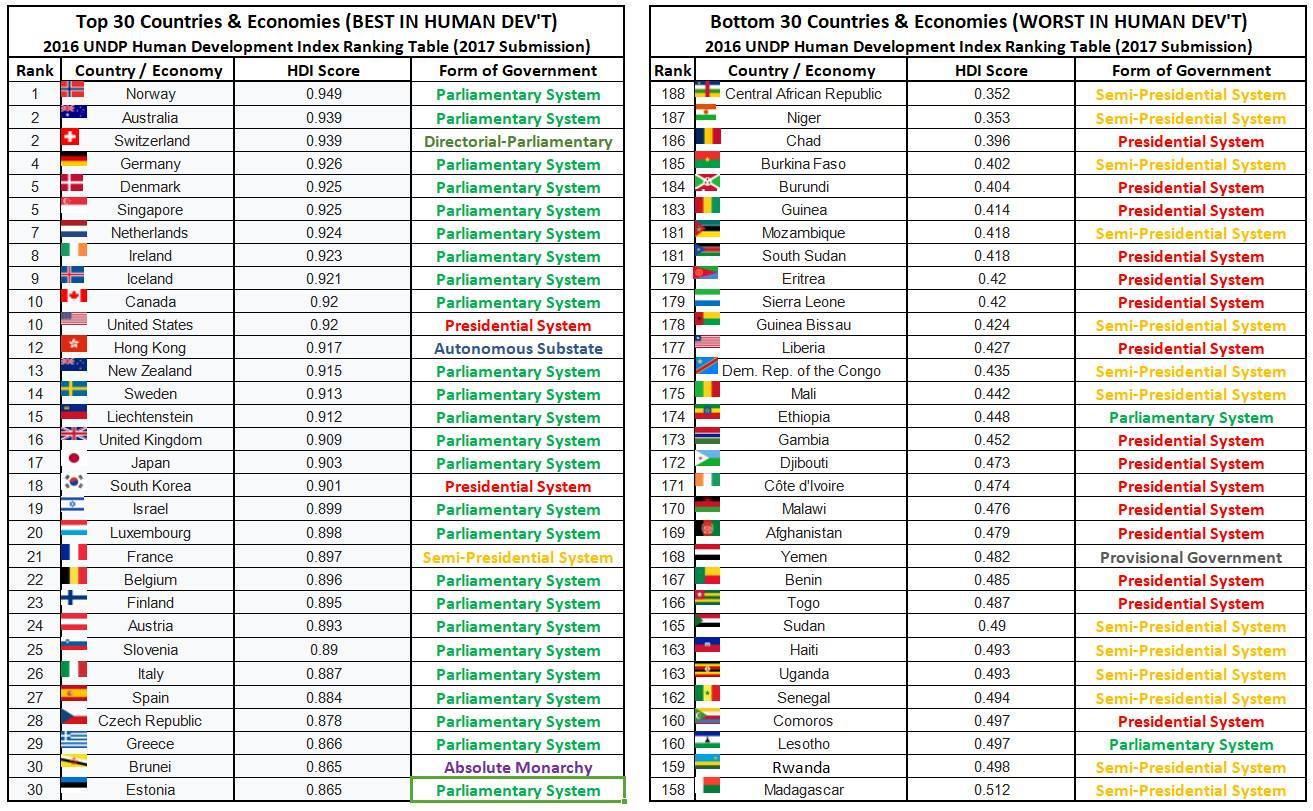
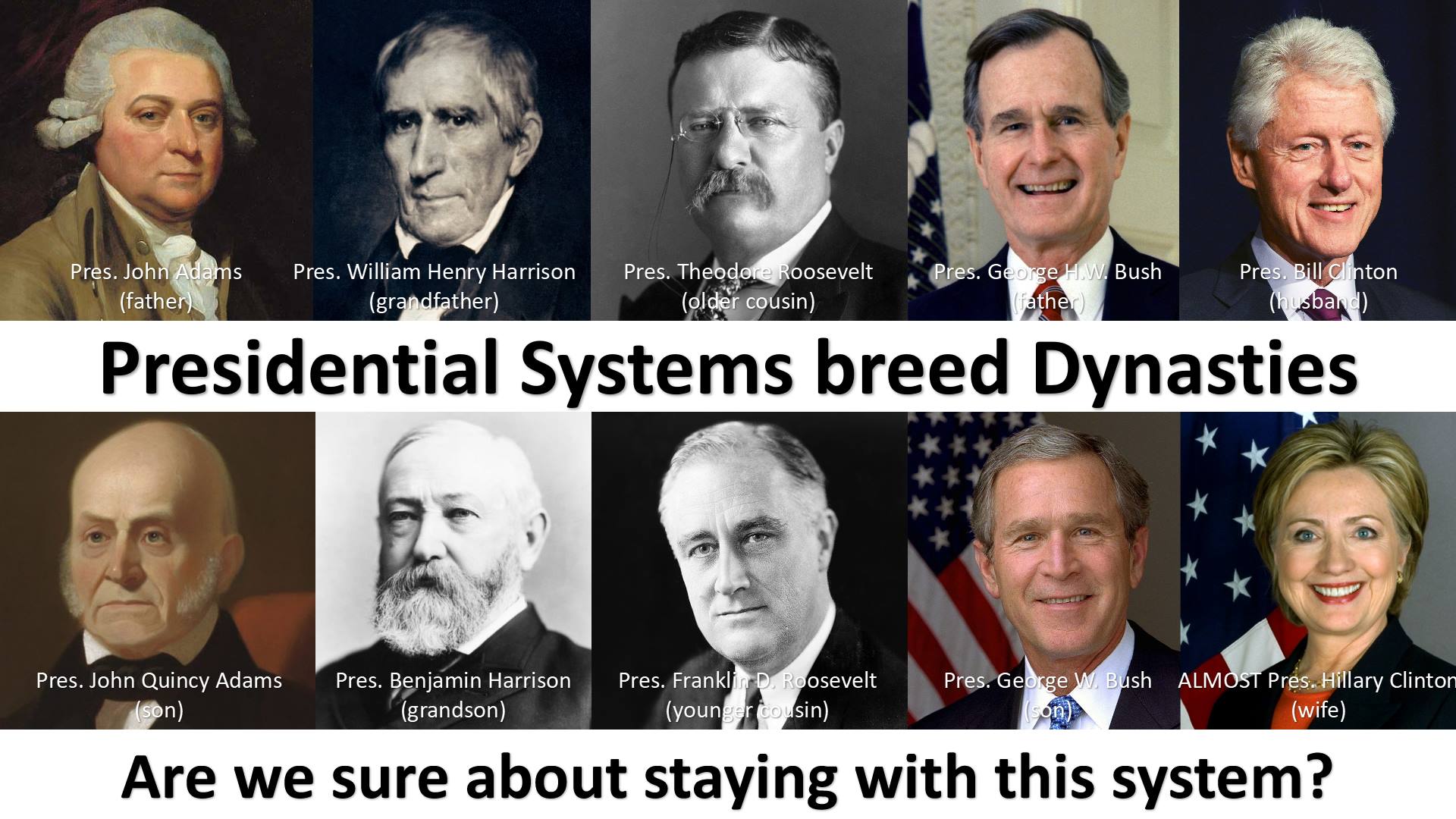
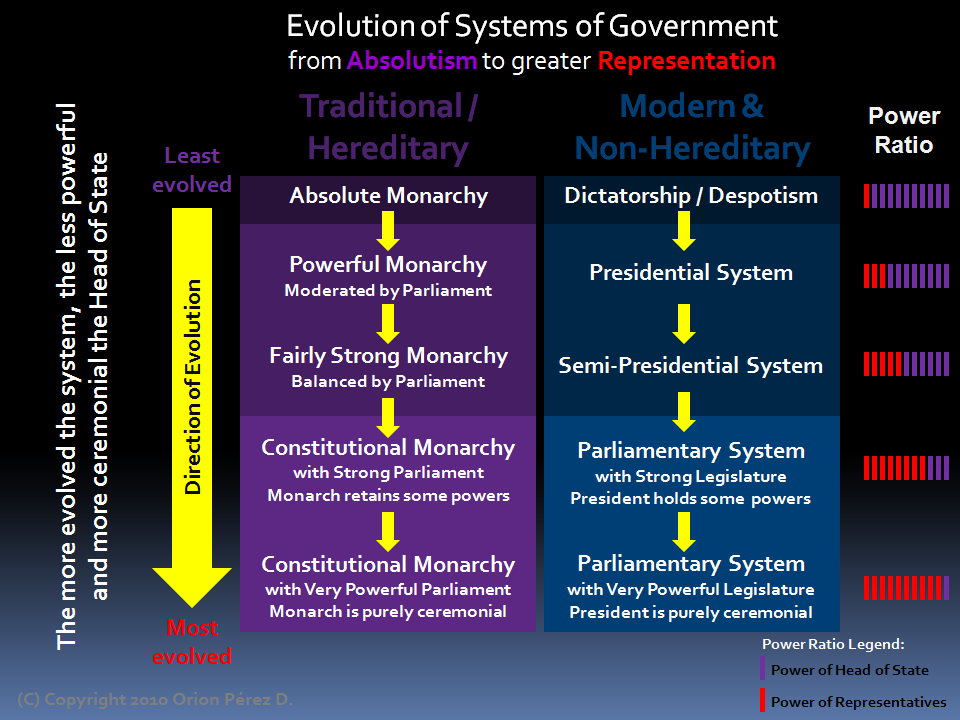
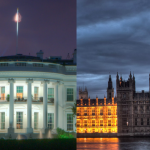

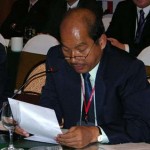

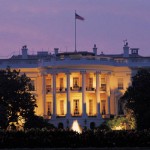
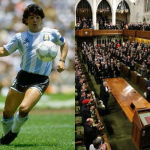

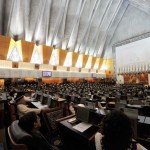


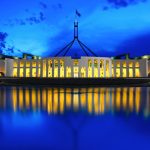

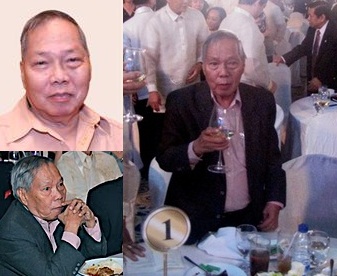
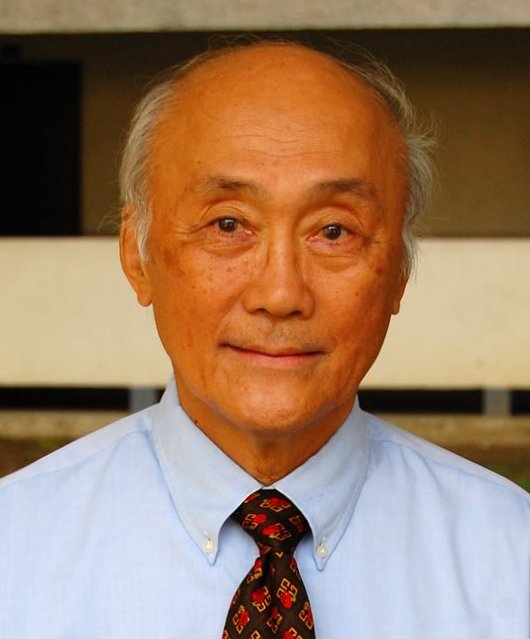
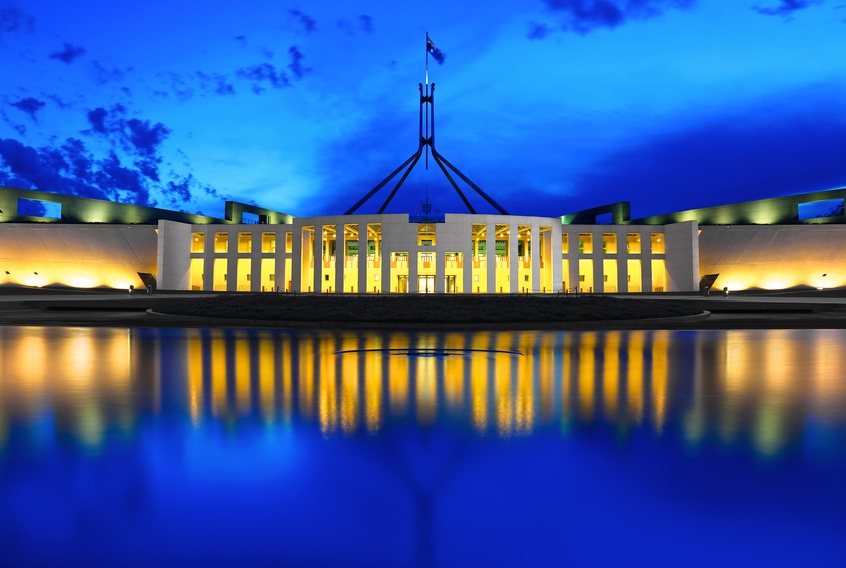
 I believe: This is a CoRRECT™ Video with a very positive message
I believe: This is a CoRRECT™ Video with a very positive message Walang Natira: Gloc-9's MTV Rap about the OFW Phenomenon
Walang Natira: Gloc-9's MTV Rap about the OFW Phenomenon



